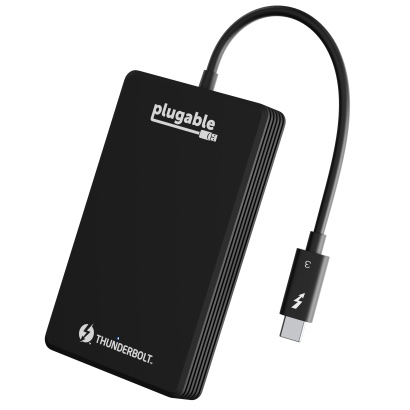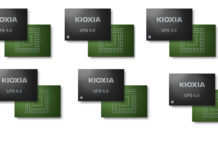HYCU makes backing up to the Google cloud cheaper by not using GCP compute facilities. Other news includes 40km InfiniBand links, PCIe 4.0 SSDs, PCIe 5.0 interface technology, faster BeeGFS software and and faster data warehouse analytics, with YellowBrick and Tableau getting together. Read on.
HYCU gets closer to GCP
HYCU has made its Google Cloud Platform backup as a service faster and cheaper.
The company launched its first generation backup as a service fin April 2019, providing backup as a service for customer applications and databases on virtual machines running on Google’s Cloud Platform (GCP).
The company’s software now uses GCP features in better ways to lower backup costs and shorten backup time. It no longer needs caching storage and HYCU says this lowers data transfer costs and makes more efficient use of cloud storage.
The backup software automatically and dynamically adjusts the number of backup streams and compute resources to the size of the protected disks. According to HYCU this is more efficient than having a pre-allocated and static number of streams and amount of compute resource irrespective of the size of the protected disks.
This software change makes backup data transfer faster and more cost-efficient, according to HYCU, which has also improved handling incremental backups. Customers can schedule backup status reports based on backup generation numbers and the company has added an annual subscription licensing plan.
We asked HYCU sone questions about this improved GCP backup service.,
B&F: Do you have any cost and/or backup time comparisons for the before and latest code generations to illustrate the cost and time savings please?
HYCU: The biggest savings to customers is in terms of storage cost. Compared to our competition, we are at least 50 per cent cheaper.
B&F: Is Google caching storage expensive?
HYCU: HYCU does not use caching storage. It sends data straight to the Object Storage. The cost of standard ssd and hard disk on GCP is price competitive to that of Azure and AWS.
B&F: Do any competing GCP backup suppliers offer similar services?
HYCU: Other players in the space run their dedupe appliance on the cloud. As you know, dedupe appliance requires lot of compute, SSD and memory. Since those are much more expensive than Google Cloud Storage, the cost of service by the other folks are double that of HYCU. Competitors here would be Actifio and Cohesity.
B&F: How is the dynamic scaling better than before?
HYCU: HYCU was built from the ground up to be dynamically scalable from a data mover perspective. When backup or recovery happens we spin up and spin down to make it extremely efficient for customers. In this release, we have also added additional intelligence to our data mover creation to dynamically size the data movers based on the size and scope of backups. This helps cut the backup time by almost 1/2.
HYCU Backup as a Service for Google Cloud is available on the GCP Marketplace and through authorised Google Cloud Service Provider partners. Subscription and billing are handled through the GCP Marketplace. Pricing is determined by the amount of data being protected and frequency of backup.
Shorts
EXTEN and AIC have produced an NVMe-oF storage system based on AIC’s Shark server. Four AMD EPYC processors manage storage processing for up to 24 local NVMe drives in its 2U enclosure. With simple striping, the 2U system achieves bandwidth of over 80GB/sec and supports both RDMA and TCP. EXTEN’s HyperDynamic SW contributes less than a microsecond of latency.
Kingston will soon release the DC1000M U.2 NVMe SSD. Using its NVME SSD technology a 10-bay NVMe server configurations can deliver 5.8 million IOPS at a sustained bandwidth of 23.8GB/sec.
Kioxia’s forthcoming enterprise CM6 dual-port and data centre CD6 single port PCIe v4.0 SSDs have achieved PCI-SIG compliance for PCIe 4.0 and University of New Hampshire InterOperability Laboratory (UNH-IOL) certification. It says the maximum bandwidth could reach 6.9GB/sec with 4 lanes and NVMe. These drives will arrive in 2020 and the CM6 has an 800GB to 30TB capacity range.
Kioxia has a 512GB Automotive UFS embedded flash drive for use in vehicles. There are capacities of 16GB, 32GB, 64GB, 128GB and 256GB as well. It has data refresh, thermal control and extended diagnostic functions.
Composable systems startup Liqid has raised $28 million in Series B funding led by Panorama Point Partners, with participation from Iron Gate Capital, and affiliates of DH Capital. Total funding stands at $50m and the company was started up in 2015.
Mellanox has introduced Quantum LongReach InfiniBand switches using 200 Gbit/s HDR. They can provide full RDMA connectivity at up to 100Gbit/s across 10 and 40 kilometre links. A LongReach switch has up to two long-reach InfiniBand ports and eight local InfiniBand ports.

Plugable, a developer of USB, Thunderbolt, Bluetooth and power-related devices, launched the Plugable Thunderbolt 3 NVMe External SSD, with up to 1 TB or 2TB of capacity and speeds of up to 2800 MB/sec read and 1800 MB/sec write, without the need for an external power connection. The 1TB model costs $299 and the 2TB model $499.
Rambus, now a non-litigating semiconductor development company, has a PCIe 5.0 interface offering backward compatibility to PCIe 4.0, 3.0 and 2.0. It includes both PHY and digital controller. This involves using a high-performance, digital controller core from recently acquired Northwest Logic.
ThinkParQ, the company behind parallel file system BeeGFS, announced the launch of v7.2 of BeeGFS for SC19. It has a new RDMA layer, management communications over TCP instead of UDP for improved reliability. improved handling of split-brain situations in Buddy Mirrored systems, support for new distributions and OFED releases and a new BeeGFS documentation interface. GA should be Q1 2020.
Hybrid data warehouser Yellowbrick Data and analytics platform Tableau, have a technology partnership. Several data analysts who have deployed Tableau with Yellowbrick are experiencing big performance gains in ad hoc queries and real-time reporting – achieving 100x time savings vs legacy deployments.







